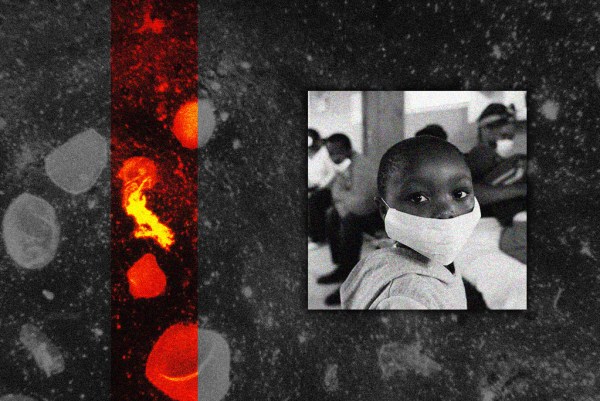Sherlock Holmes has gone through a lot of looks through the years. From the deerstalker hat and cape of Basil Rathbone to the coat and scarf of Benedict Cumberbatch to the bohemian gentleman’s garb favored by Robert Downey Jr.’s interpretation of the character, when bringing the great detective to life there is an understandable desire to make each version somehow different from the ones that came before. Netflix’s The Irregulars—now available to stream—takes that desire to a new extreme. In the show, Holmes has a pierced ear. And a buzzcut. In flashbacks to him in his prime he has long hair and looks like a Victorian London version of Captain Jack Sparrow.
This description should tell you everything you need to know about The Irregulars, a show that either misunderstands or cares very little about what makes the world Sir Arthur Conan Doyle created work. The protagonists of this show are the Baker Street Irregulars, who in the Conan Doyle stories were the street urchins who the detective employed to be his eyes and ears in the city. In The Irregulars, they’re less “eyes and ears” and more “the ones who actually solve the mysteries,” setting this up as Netflix’s latest attempt to capitalize on the success of properties like Stranger Things and It, giving us yet another ragtag group of teenage mystery solvers up against some great paranormal evil.
Thaddea Graham stars as Bea, the older sister of Jessie (Darci Shaw) and the leader of the Irregulars. Struggling for money and fearing having to return to a workhouse, Bea accepts a job from a vaguely sinister Dr. Watson (Royce Pierreson), who asks the crew to look into mysterious happenings around London. They eventually find that Watson is desperately trying to keep up appearances because Sherlock (Henry Lloyd-Hughes) has disappeared, and that a tear in the fabric of reality is endowing villains with supernatural powers.
The things that work first: Graham is excellent. She isn’t given the best script to work with, but she is affable and plucky and eminently watchable. But it’s Pierreson’s take on Dr. Watson that manages to be The Irregulars’ brightest point. His Watson is more competent that past screen iterations, and his stern mannerisms are an interesting direction to take the character, one that manages to be fresh while not rendering the character recognizable.
The things that don’t work: Well, the rest of the show. When it comes to character reinterpretation misfires, Holmes’ aforementioned ear piercing is just the tip of the iceberg. He’s presented as a drug addict no longer capable of deduction, routinely outsmarted and bossed around by a bunch of precocious teenagers whose mystery-solving abilities come not from practice or skill but from coincidence, convenience, and general deus ex machina—for a Sherlock Holmes-inspired show there is a bizarre lack of actual deduction. Mrs. Hudson is portrayed as a cynical slumlord, Inspector Lestrade is a bigoted Catholic religious extremist, Mycroft Holmes is an occultist who, rather than being the more intelligent but lazier Holmes brother, has no apparent deductive abilities. The list goes on.
Granted, it’s the children, not Sherlock and his allies, who are meant to be the focus of the show, but setting aside the issues stemming from the non-canon—or, perhaps more accurately, anti-canon—take on Sherlock’s world, The Irregulars fails to deliver a compelling story. The paranormal mysteries don’t involve any real mystery solving and the attempts at Lovecraftian frights were Scooby-Doobified for younger audiences, robbing any of the horrors of their horror.
Even with a generous view toward YA television, the show’s teen relationships and struggles are rough to watch. It’s awkward and unrealistic, and the romances are painfully silly. Beyond Bea and her sister Jessie , the other nominally main characters get no development, and the protagonists make decisions and create conflict with each other for seemingly no reason other than plot necessity. Even though Holmes is on-screen for only a fraction of the time the kids are, viewers gain a stronger understanding of his motivations than theirs, This leaves viewers with little to no grasp of why anyone is doing anything or why we should care.
Sherlock Holmes has been adapted so many times over the years, there is little new that can be squeezed out of the property. The Irregulars does not work as a show, but it does succeed at one thing: reminding viewers that new does not always mean better and that, to borrow a line from a reimagination done right, “Sometimes the old ways are the best.”








Please note that we at The Dispatch hold ourselves, our work, and our commenters to a higher standard than other places on the internet. We welcome comments that foster genuine debate or discussion—including comments critical of us or our work—but responses that include ad hominem attacks on fellow Dispatch members or are intended to stoke fear and anger may be moderated.
With your membership, you only have the ability to comment on The Morning Dispatch articles. Consider upgrading to join the conversation everywhere.